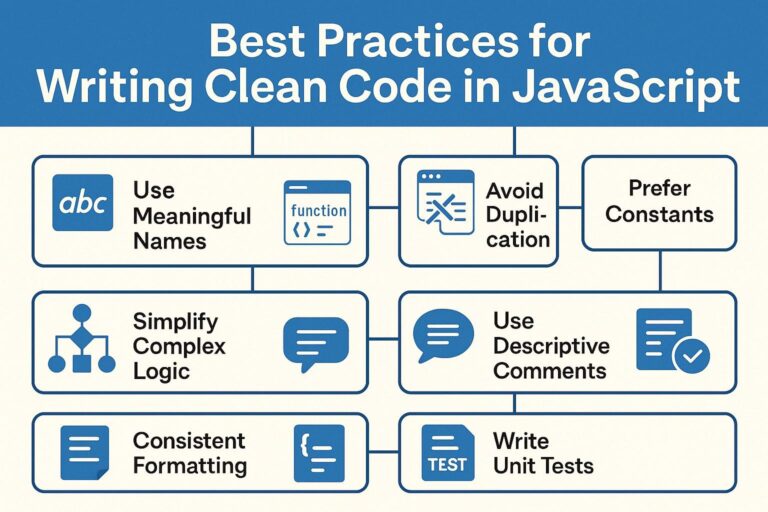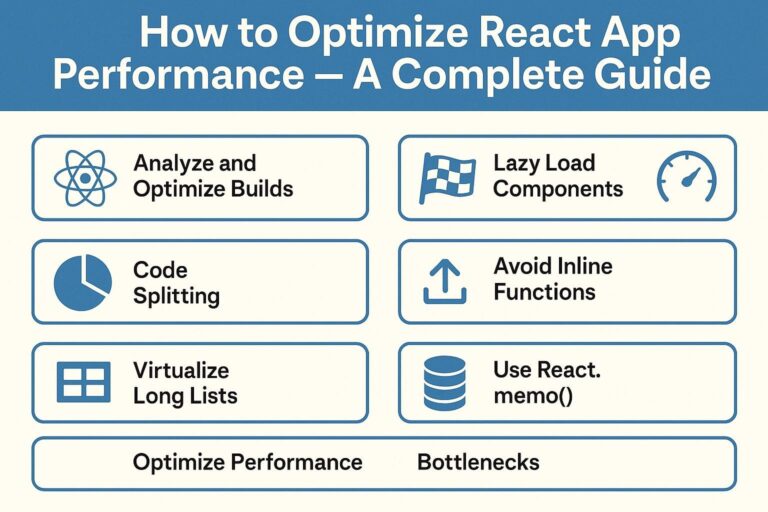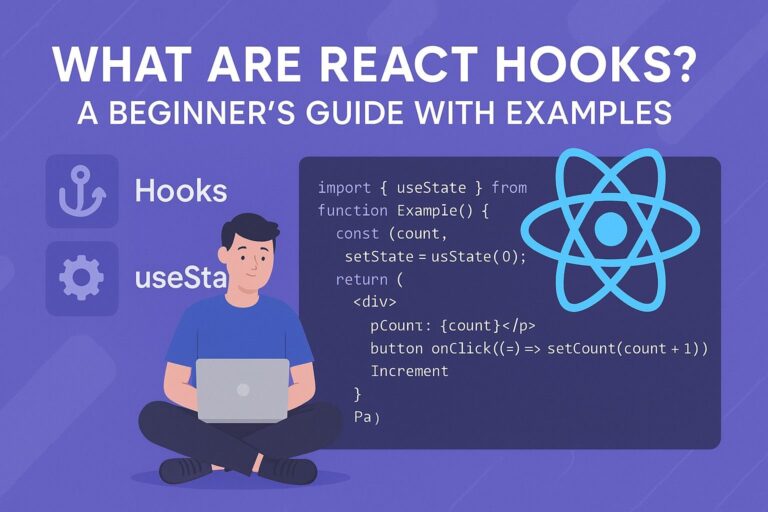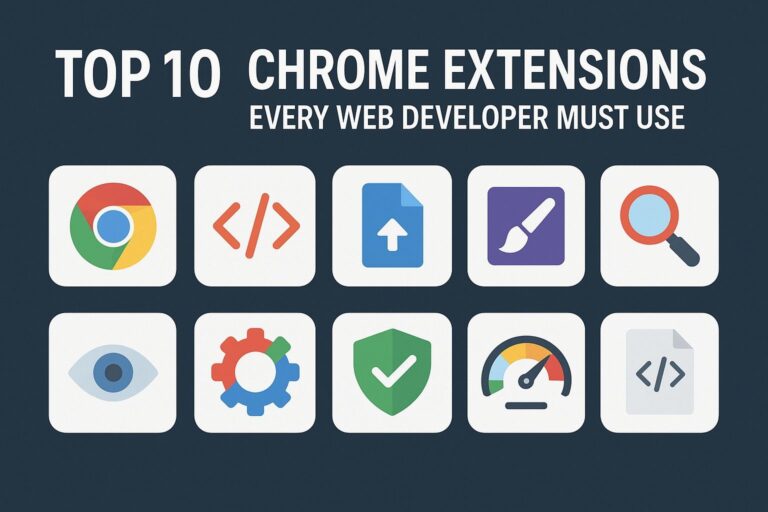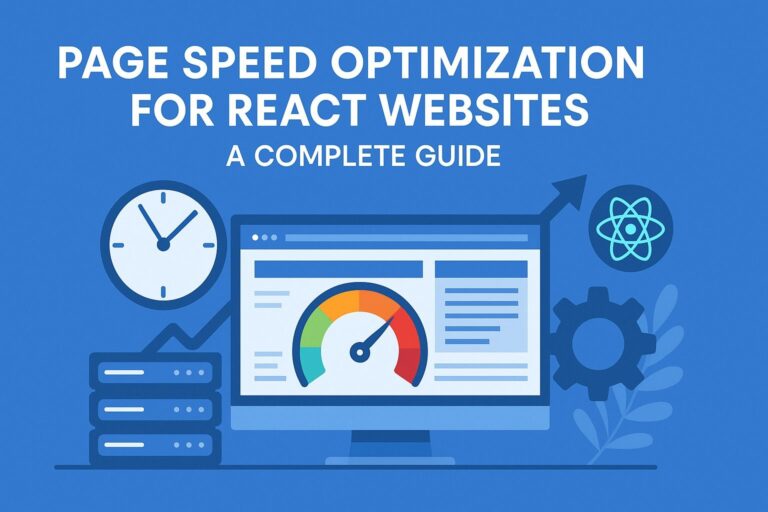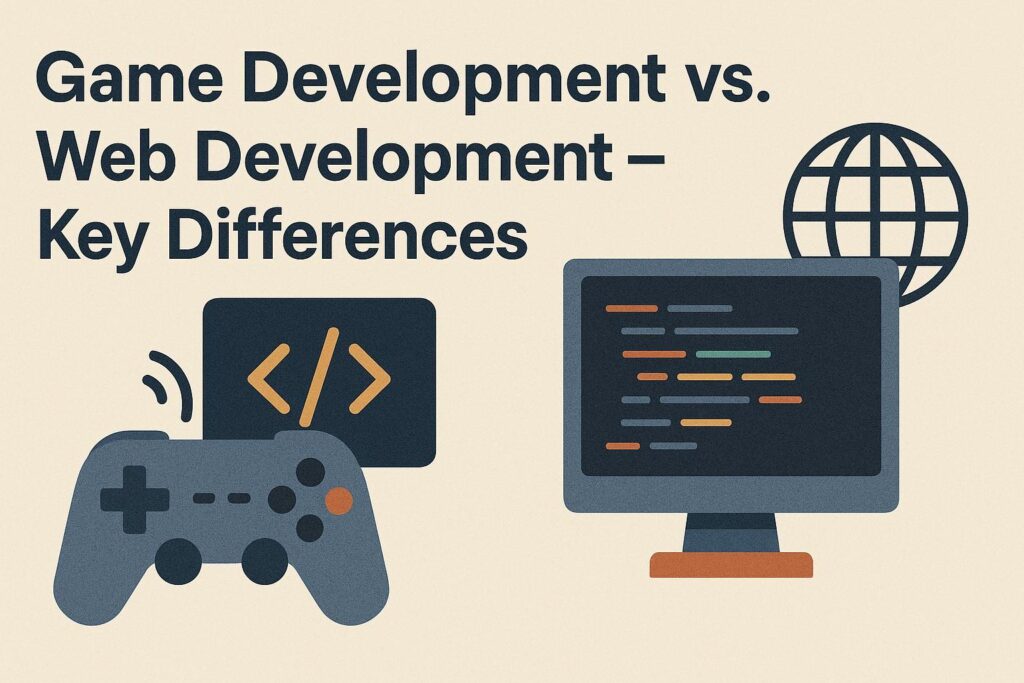
Choosing a career in software development opens up a variety of exciting paths, but two of the most popular—and often confused—specializations are game development and web development. While both involve programming and software creation, the skills, tools, workflows, and goals differ significantly.
Whether you’re a student exploring your options or a developer considering a career switch, understanding the key differences between game development and web development can help you make a more informed decision.
1. Core Purpose and Goals
Game Development
The goal of game development is to create interactive digital experiences—whether that’s a 2D puzzle app, a 3D console shooter, or a VR simulation.
- Focuses on user interaction, physics, AI behavior, animations, graphics rendering, and storytelling.
- Prioritizes real-time performance, responsiveness, and immersive experiences.
Web Development
Web development is about creating functional websites and web applications for users to access via browsers.
- Involves building the front-end (UI/UX) and back-end (database, logic, APIs) of web-based platforms.
- Prioritizes accessibility, scalability, security, and mobile responsiveness.
2. Programming Languages and Tools
Game Development
- Languages: C++, C#, Python, Lua, Java
- Game Engines: Unity, Unreal Engine, Godot, CryEngine
- Frameworks: Phaser (2D), MonoGame
- Specialized Tools: Blender (3D modeling), FMOD (sound), Spine (2D animation)
Game developers often work closely with 3D artists, sound designers, and animators.
Web Development
- Languages: HTML, CSS, JavaScript, TypeScript
- Front-End Frameworks: React, Angular, Vue.js
- Back-End Technologies: Node.js, Django, Ruby on Rails, ASP.NET, PHP
- Databases: MySQL, PostgreSQL, MongoDB
- Tools: Git, Webpack, Docker, REST APIs, GraphQL
Web development is highly collaborative with UI/UX designers and product managers.
3. Learning Curve and Complexity
Game Development
Game development often has a steeper learning curve due to:
- Real-time rendering
- Game physics
- Animation systems
- Memory optimization
- Game logic and AI
It demands a mix of creative and technical skills, often pushing the limits of hardware.
Web Development
Web development is considered more accessible for beginners, especially with modern frameworks and resources.
While it’s easier to start, advanced web applications (like SaaS platforms or real-time apps) require deep knowledge of system architecture, databases, and performance optimization.
4. Job Market and Career Opportunities
Game Development
- Roles: Game Developer, Gameplay Programmer, Level Designer, Technical Artist, Unity Developer
- Industries: Gaming studios, indie game teams, AR/VR startups, simulation training
- Competition is high, especially for top-tier studios.
- Often project-based work with crunch periods before releases.
Web Development
- Roles: Front-End Developer, Back-End Developer, Full-Stack Developer, DevOps Engineer
- Industries: E-commerce, fintech, healthcare, education, media, almost every domain
- Growing demand due to the digital transformation of businesses.
- More remote opportunities and stable work schedules compared to gaming.
5. Development Environment and Workflow
Game Development
- Development is resource-intensive, requiring high-end machines and GPUs.
- Frequent need for testing on multiple platforms (PC, mobile, console).
- Workflow involves sprints, builds, QA testing, and bug tracking focused on user experience.
Web Development
- Typically developed in browser-based environments or local servers.
- Focus on continuous integration, agile development, A/B testing, and SEO.
- Tools are lightweight and can run on modest hardware.
6. Monetization and End Product
Game Development
- Products: Games (paid, free-to-play, freemium), VR experiences
- Monetization: Game sales, ads, in-app purchases, subscriptions, DLCs
- Revenue is often dependent on popularity and user engagement
Web Development
- Products: Websites, SaaS platforms, portals, dashboards
- Monetization: Subscriptions, affiliate marketing, ad revenue, e-commerce
- Revenue is typically more stable and tied to business services
7. Creativity and User Experience
Game Development
- Heavily creative and storytelling-driven
- Involves crafting interactive worlds, characters, and challenges
- High focus on player engagement and visual experience
Web Development
- Creativity lies in UI/UX design, accessibility, branding, and responsiveness
- Focused on solving problems and providing value to users
- More analytical and business-oriented
Which One Should You Choose?
Choose Game Development if:
- You’re passionate about games and interactive experiences
- You enjoy working with graphics, animation, and real-time logic
- You are willing to face a steeper learning curve and competitive job market
- You want to build immersive worlds, not just tools
Choose Web Development if:
- You want to build practical applications used in everyday life
- You prefer a broader job market with higher stability
- You enjoy clean UI design, backend logic, or full-stack challenges
- You’re looking for easier entry into tech with strong growth potential
Final Thoughts
Both game development and web development are dynamic, rewarding fields—but they cater to different personalities, skill sets, and career goals.
Game development is immersive, creatively fulfilling, and technically intense. Web development is more accessible, scalable, and commercially widespread. The best path depends on your passion, goals, and how you want to use your skills to impact the digital world.
Choose wisely—and whichever path you take, commit to continuous learning and exploration.

I’m Shreyash Mhashilkar, an IT professional who loves building user-friendly, scalable digital solutions. Outside of coding, I enjoy researching new places, learning about different cultures, and exploring how technology shapes the way we live and travel. I share my experiences and discoveries to help others explore new places, cultures, and ideas with curiosity and enthusiasm.

